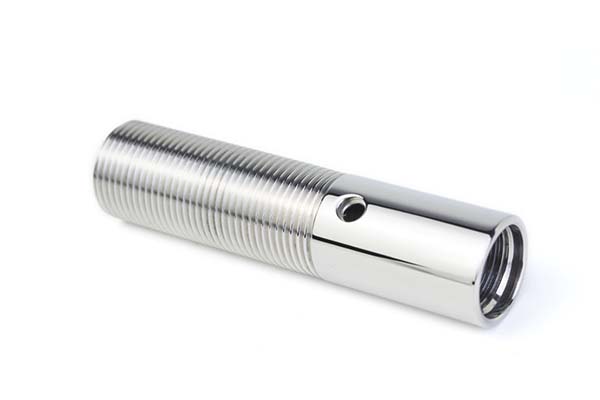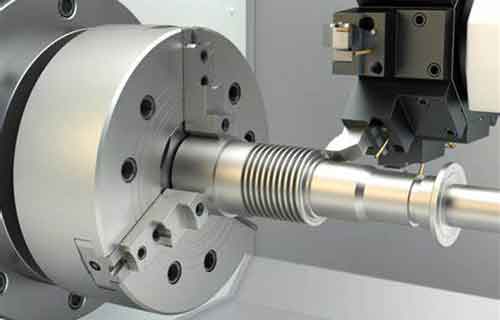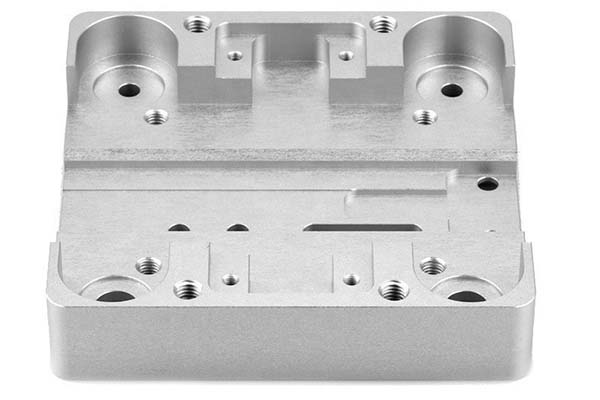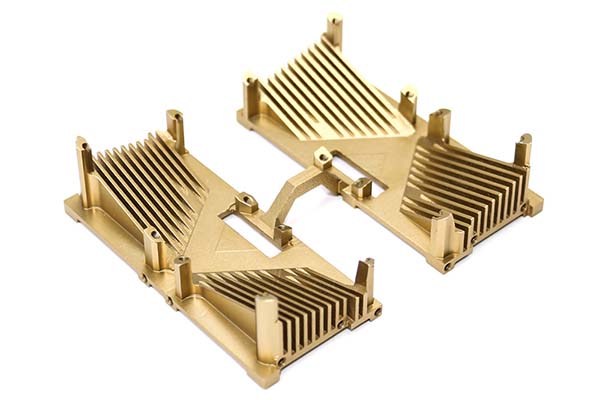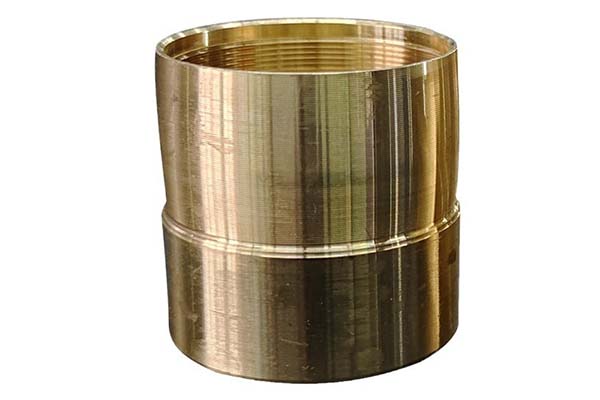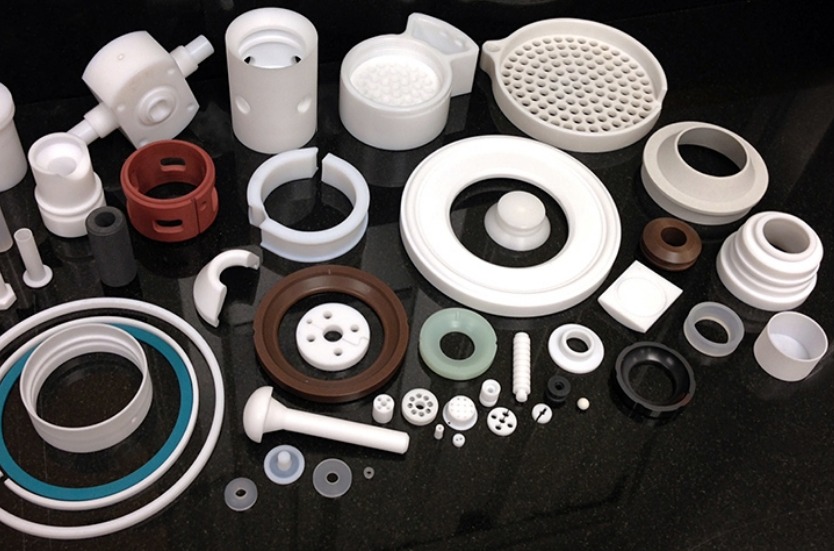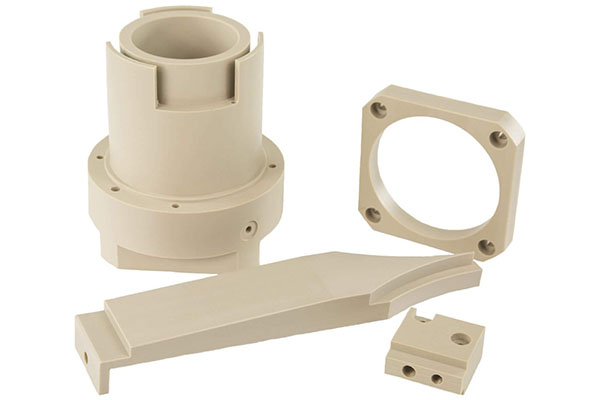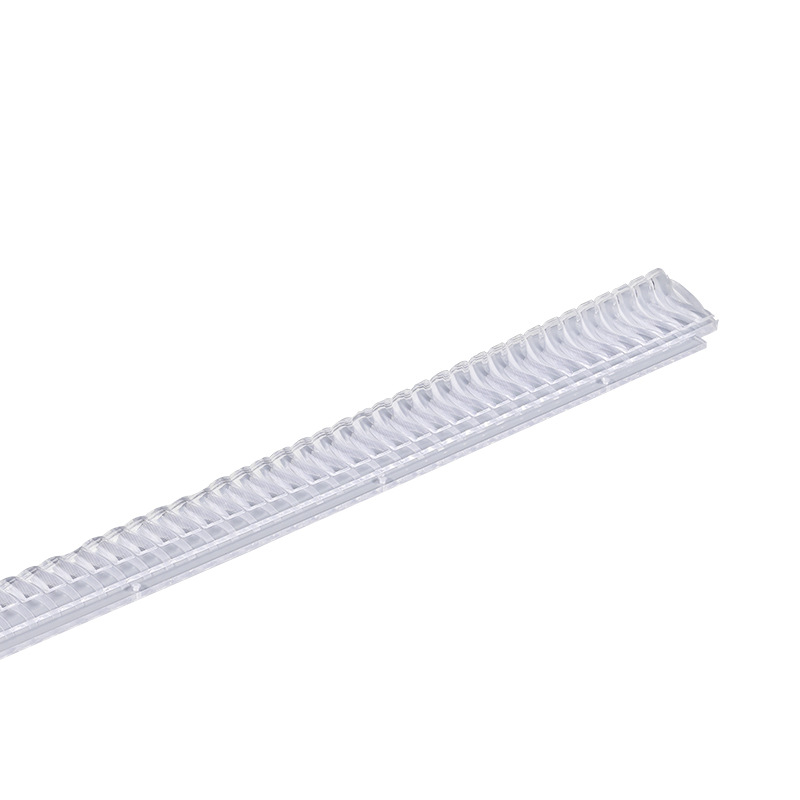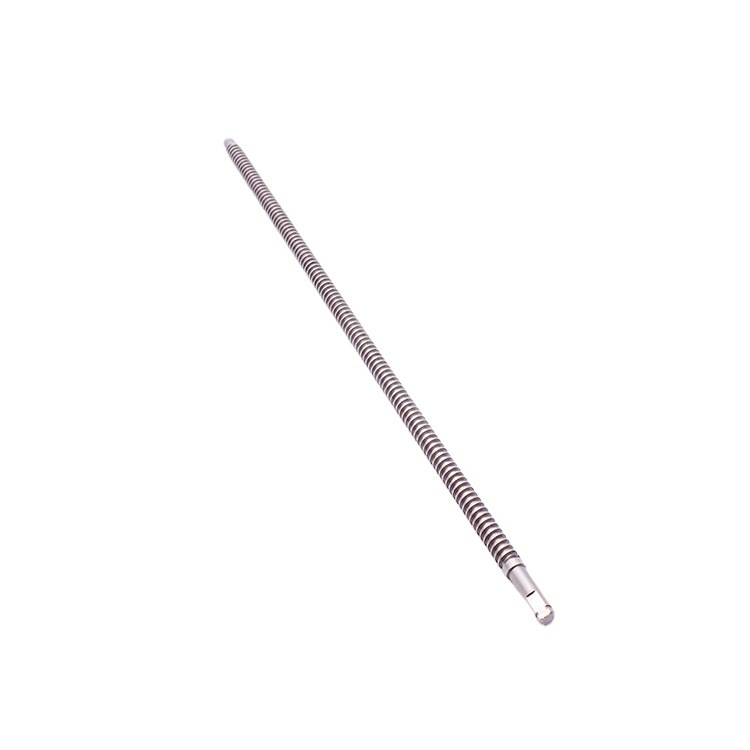Ti-5Al-2.5Sn, also known as Grade 6 titanium, is a high-performance titanium alloy valued for its exceptional thermal stability and corrosion resistance in high-temperature environments. Its unique alloy composition—5% aluminum, 2.5% tin, and 92.5% titanium—makes it a go-to material for aerospace and industrial applications where strength at elevated temperatures is critical. However, machining this alloy presents distinct challenges, from its work-hardening tendency to its low thermal conductivity. This guide provides a comprehensive overview of CNC machining Ti-5Al-2.5Sn, offering actionable insights to overcome common hurdles and ensure precision results.
Material Overview of Ti-5Al-2.5Sn (Grade 6)
Key Properties and Composition
The alloy composition of Ti-5Al-2.5Sn is carefully balanced to deliver unique performance characteristics. Aluminum enhances strength and stability, while tin improves high-temperature resistance without compromising ductility. This combination results in impressive mechanical properties: a tensile strength of 760–930 MPa, a yield strength of 690 MPa, and excellent creep resistance at temperatures up to 480°C—far higher than many other titanium grades.
Corrosion resistance is another standout feature of Grade 6. It performs exceptionally well in oxidizing environments, including high-temperature steam and industrial chemicals, making it ideal for chemical processing equipment. Its thermal stability is particularly notable; unlike Grade 5 (Ti-6Al-4V), which softens above 315°C, Ti-5Al-2.5Sn retains 90% of its room-temperature strength at 400°C, as confirmed by long-term creep tests.
How Properties Impact Machinability
Grade 6’s properties create specific machining challenges. Its moderate hardness (32–36 HRC) is higher than Grade 2 but comparable to Grade 5, requiring durable cutting tools. Its low thermal conductivity (16 W/m·K) traps heat at the cutting zone, accelerating tool wear and increasing the risk of work hardening. A comparative study found that Ti-5Al-2.5Sn generates 10% more heat during milling than Grade 5, even at the same cutting speeds. Additionally, its high ductility can lead to chip adhesion, which mars surface finishes and increases cutting forces.
CNC Machining Processes for Ti-5Al-2.5Sn
Essential Tools and Techniques
CNC machining of Grade 6 titanium demands specialized machining techniques and cutting tools. Carbide tools with AlTiN or TiAlN coatings are mandatory, as they resist the high temperatures (up to 900°C) generated during cutting. In testing, AlTiN-coated carbide end mills lasted 30% longer than TiAlN-coated tools when machining Ti-5Al-2.5Sn, thanks to their superior oxidation resistance at high temperatures.
Tool selection is critical for different operations:
- Milling: Use 4-flute carbide end mills with variable helix angles (35–45 degrees) to reduce chatter and improve chip evacuation.
- Turning: Positive rake inserts with sharp cutting edges minimize cutting forces and work hardening.
- Drilling: Carbide drills with through-coolant holes are essential to flush chips and cool the cutting zone.
Optimal Machining Parameters
Machining parameters must be carefully optimized to balance efficiency and tool life:
- Milling: Cutting speeds of 60–90 m/min with feed rates of 0.08–0.15 mm/tooth. A case study on aerospace brackets found that these parameters reduced tool wear by 25% compared to higher speeds.
- Turning: Cutting speeds of 50–70 m/min and feed rates of 0.1–0.18 mm/rev. Lower speeds prevent excessive heat buildup, while moderate feed rates ensure consistent chip formation.
- Drilling: Speeds of 30–50 m/min and feed rates of 0.08–0.12 mm/rev, paired with high-pressure coolant (70–100 bar) to prevent chip welding.
Achieving Desired Surface Finish
Surface finish requirements for Grade 6 vary by application, with aerospace components often needing Ra < 1.6 μm. To achieve this:
- Use sharp tools with polished flutes to reduce friction and minimize material smearing.
- Implement high-pressure coolant to flush chips away from the workpiece surface.
- Avoid interrupted cuts, which cause micro-vibrations that roughen surfaces. A production test showed that maintaining a constant cutting engagement reduced surface roughness by 40% in Ti-5Al-2.5Sn parts.
Grade 6 Specifications
Standards and Certification
Grade 6 titanium is governed by strict ASTM specifications, primarily ASTM B348 (for bars and forgings) and ASTM B265 (for sheet and plate). These standards define chemical composition limits: aluminum (4.0–6.0%), tin (2.0–3.0%), and impurities like oxygen (≤0.20%) and iron (≤0.30%). They also specify mechanical property requirements, including tensile strength (≥760 MPa) and elongation (≥10%).
Material certification for Grade 6 includes:
- Chemical analysis via glow discharge mass spectrometry to verify alloy purity.
- Tensile and creep testing to confirm high-temperature performance.
- Ultrasonic inspection to detect internal defects, critical for aerospace applications.
Technical Requirements and Dimensional Tolerances
Technical requirements for Grade 6 include tight dimensional tolerances, especially for aerospace components. ASTM B348 specifies diameter tolerances of ±0.13 mm for precision bars, while sheet products (ASTM B265) must meet thickness tolerances of ±0.05 mm. These strict standards ensure that machined parts fit precisely in assemblies like jet engine components, where even minor deviations can cause performance issues.
Applications and Industries for Ti-5Al-2.5Sn
Key Sectors and Uses
Aerospace components represent the largest application for Grade 6 titanium. Its high-temperature strength makes it ideal for jet engine parts like compressor blades, turbine casings, and exhaust systems. A major aircraft engine manufacturer reported that switching to Ti-5Al-2.5Sn for turbine casings reduced weight by 15 kg per engine while improving durability at 450°C.
In industrial machinery, Grade 6 is used for high-temperature valves, heat exchangers, and furnace components. Its corrosion resistance and thermal stability make it indispensable for chemical processing equipment handling hot, corrosive fluids. Medical devices such as surgical instruments also utilize Grade 6, though less commonly than Grade 23, due to its good biocompatibility and strength.
Automotive parts for high-performance vehicles, including racing engine valves, leverage its heat resistance, while high-performance applications like rocket propulsion systems rely on its ability to withstand extreme temperatures (up to 480°C) and mechanical stress.
Real-World Performance Examples
In aerospace, Ti-5Al-2.5Sn compressor blades have demonstrated a 30% longer service life than stainless steel alternatives in jet engines, thanks to their creep resistance. In chemical processing, Grade 6 valves handling 300°C sulfuric acid solutions showed minimal corrosion after 5,000 hours of operation—far outperforming nickel alloys, which required replacement after 3,000 hours.
Quality and Performance of Ti-5Al-2.5Sn
Quality Control Measures
Quality control for Grade 6 machining starts with incoming material inspection. Each batch is tested for:
- Chemical composition via X-ray fluorescence to ensure compliance with ASTM standards.
- Mechanical properties through tensile testing at room and elevated temperatures.
- Microstructural analysis to verify grain size and phase distribution, which affect machining behavior.
In-process inspections include:
- Dimensional accuracy checks using coordinate measuring machines (CMMs) to ensure tolerances within ±0.005 mm for critical features.
- Surface finish testing with profilometers to confirm Ra values meet specifications.
- Ultrasonic testing after machining to detect subsurface defects introduced during cutting.
Performance Metrics and Compliance
Performance metrics for Grade 6 parts include:
- Fatigue strength: ≥480 MPa at 10⁷ cycles (room temperature).
- Creep rate: <0.1% per 1,000 hours at 400°C and 60% of yield strength.
- Corrosion rate: <0.01 mm/year in 5% sulfuric acid at 100°C.
Compliance with industry standards is non-negotiable. Aerospace parts must meet AS9100 quality management requirements, while medical components adhere to ISO 13485. These standards ensure that Grade 6 parts perform reliably in their intended applications, from jet engines to surgical theaters.
Yigu Technology's Perspective
At Yigu Technology, we specialize in CNC machining Ti-5Al-2.5Sn (Grade 6) for demanding industries. Our process begins with rigorous material verification, ensuring each batch meets ASTM specifications for chemical composition and mechanical properties. We use advanced cutting tools with AlTiN coatings and optimize machining parameters to manage heat buildup and prevent work hardening. Our quality control includes CMM inspections for dimensional accuracy and ultrasonic testing for internal defects. By combining technical expertise with strict adherence to standards, we deliver Grade 6 components that excel in high-temperature, high-stress applications—from aerospace to chemical processing.
FAQs
Q1: How does Ti-5Al-2.5Sn (Grade 6) compare to Ti-6Al-4V (Grade 5) in terms of high-temperature performance?
A1: Ti-5Al-2.5Sn outperforms Ti-6Al-4V at elevated temperatures, retaining 90% of its room-temperature strength at 400°C compared to 70% for Grade 5. It also resists creep better, making it ideal for applications above 315°C.
Q2: What cutting tools are best for machining Grade 6 titanium?
A2: AlTiN-coated carbide tools are optimal due to their high-temperature resistance. For milling, 4-flute variable helix end mills reduce chatter, while positive rake inserts work best for turning to minimize cutting forces.
Q3: Which industries benefit most from Ti-5Al-2.5Sn?
A3: Aerospace components (engine parts), chemical processing (high-temperature valves), and industrial machinery (heat exchangers) benefit most. Its thermal stability and corrosion resistance make it irreplaceable in these high-temperature environments.
